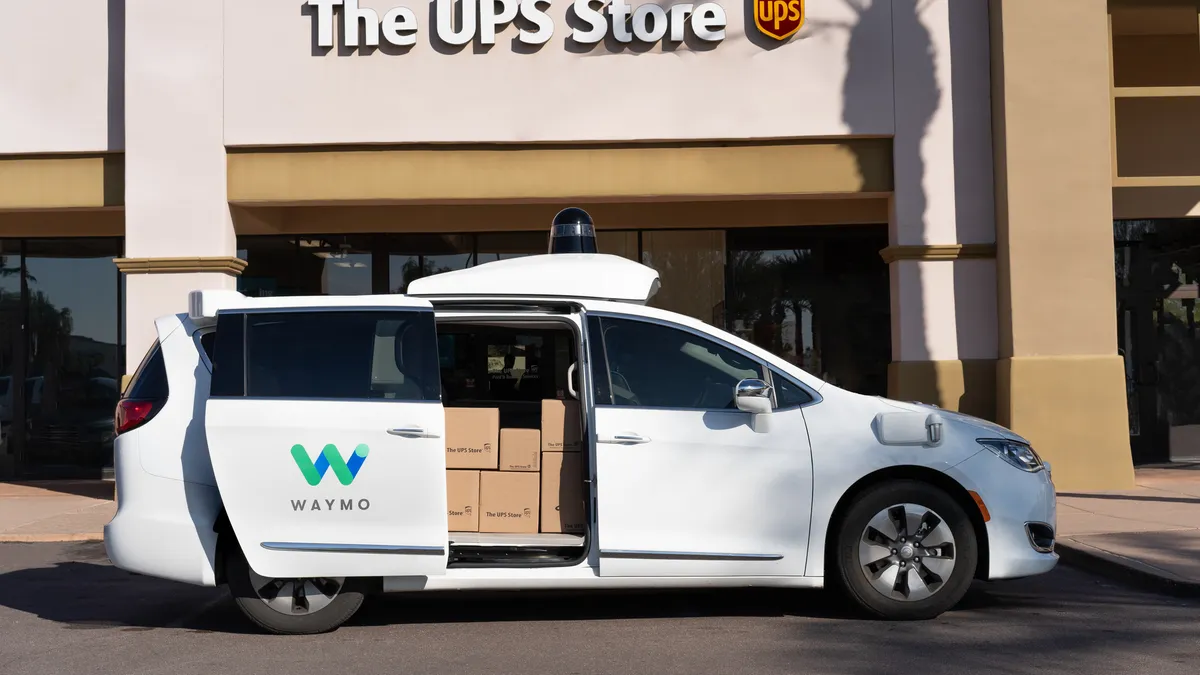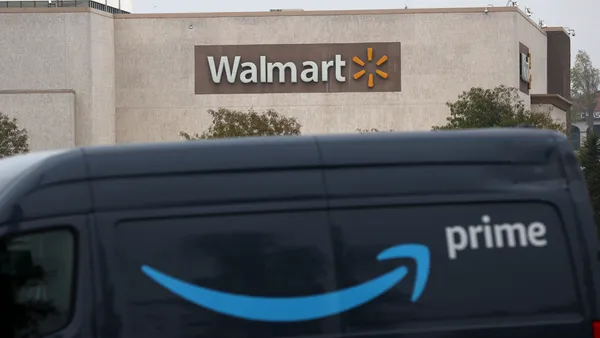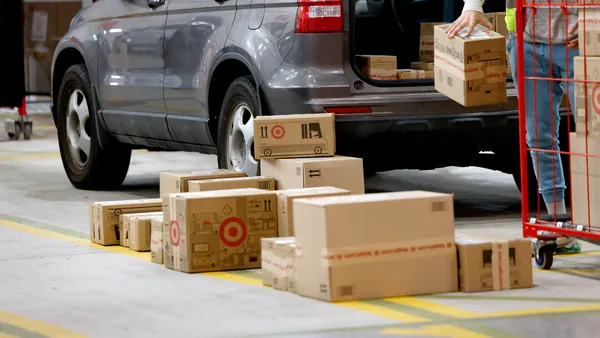Dive Brief:
- UPS and Waymo, a self-driving vehicle company, are launching a parcel transportation pilot, according to an announcement Wednesday.
- Waymo's autonomous Chrysler Pacifica minivans will pick up packages from UPS stores in the Phoenix metro area and deliver them to nearby UPS sorting facilities in Tempe, Arizona for processing. A Waymo-trained driver will be present in the vehicles at all times.
- The pilot will assist with "getting packages to our sortation facilities sooner and more frequently, while also creating an opportunity for later drop-offs for next-day service," Scott Price, UPS chief strategy and transformation officer, said in a statement. The two companies plan to use the pilot to determine ways they can incorporate autonomous vehicles at scale and potentially work together long-term.
Dive Insight:
As last-mile delivery demand continues to grow, and the supply of drivers remains weak, more firms are looking to autonomous vehicles to eventually cut down on labor costs and improve driver retention.
In UPS' case, it believes its partnership with Waymo will speed up parcel throughput at its retail locations, freeing up valuable space and giving customers greater flexibility when it comes to delivery cut-off times for outgoing packages.
This isn't UPS' first foray into autonomous delivery. The carrier has previously invested in, and run delivery pilots with, the self-driving trucking company TuSimple which plans to run fully autonomous deliveries in 2021. The company claimed it could save UPS up to 30% on transportation costs during peak season by reducing the need to contract deliveries out to third-party carriers as the demand for drivers increases.
In addition, the ability for autonomous trucks to run non-stop in the future would increase delivery speeds, a win for shippers and their customers.
TuSimple and Waymo operate Level 4, or "High Automation," vehicles meaning they are capable of running autonomously in certain conditions and a driver retains the option to take over control when necessary. Regulations vary from state-to-state as to what level of autonomous vehicles are allowed to operate, however, a licensed driver is generally required to be present in the vehicle on public roads.
Arizona permits Level 4 autonomous vehicle testing, making it a prime location for a variety of companies to run pilots, including Uber and GM. The state removed the driver requirement for autonomous vehicles in 2018.
Waymo has focused on its ride-sharing fleet in the area, integrating its driverless vehicles with Lyft in certain cities. It announced last year plans to expand last-mile delivery and Class 8 trucks and released plans to launch new test operations in Texas and New Mexico this year.
While operators will need to remain in self-driving vehicles until technology and safety regulations catch up, the companies developing them are already making the case for a future where drivers are no longer necessary, potentially freeing up additional resources for firms to invest in network expansion and faster delivery times.














